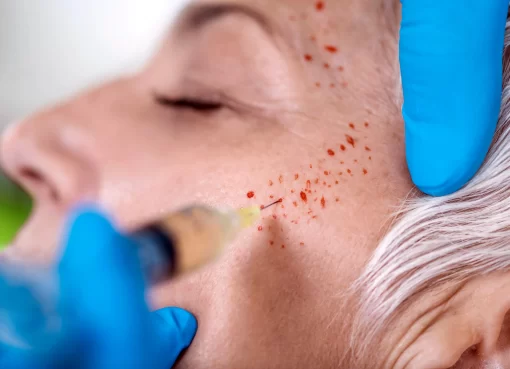If you or someone you love has been diagnosed with Alzheimer’s disease, you may be feeling uncertain about what to expect as the illness progresses. Amid all of these uncertainties, there are many ways you can help your loved one manage their symptoms and lead as well-balanced a life as possible for as long as possible. Of course, there are numerous benefits of nanotechnology and nanoparticles in treating Alzheimer’s disease, but in this post, we’ll review some tips on how you can help your loved one suffering from this illness:
Stay informed about your loved one’s diagnosis.
Early diagnosis is crucial for effective Alzheimer’s disease treatment. The sooner Alzheimer’s is diagnosed, the sooner treatment can begin, and the better your loved one’s symptoms will be managed. Be sure to discuss your loved one’s diagnosis with their doctor, and ask them to explain the progression of their disease and its symptoms. This will help you better understand your loved one’s diagnosis and what they might expect as the disease progresses.
Create a caregiving plan.
Creating a caregiving plan will help you prepare for this transition. You can start this process by answering a few questions, such as: Who will provide your loved one with care? Can your loved one continue to receive advanced treatment for Alzheimer’s if they live in a long-term care facility? What happens to your loved one’s assets when they enter long-term care? By answering these questions now, you’ll be better prepared to make the right decision for your loved one when the time comes.
Help your loved one stay physically active.
Whether you are looking for Alzheimer’s or diabetes treatment, there are some common tips that you should follow. If your loved one is no longer able to walk, try to find other ways for them to stay active. This may include swimming, yoga, or other non-weight-bearing activities. Additionally, try to keep your loved one’s surroundings as open and accessible as possible. This will help your loved one stay mobile even if they are no longer able to walk. Don’t forget to track the latest trends in this area and monitor the new treatments.
Help your loved one continue to participate in activities they enjoy.
Of course, treatment for chronic diseases may be challenging. However, if your loved one continues to have the ability to think, read, or engage in other activities of their choosing, this can greatly improve their quality of life. If your loved one is still able to engage in these activities helping your loved one continue to pas, try to help them continue to do so as long as possible. This may include reading to your loved one or helping them keep up with hobbies, such as gardening or woodworking. Additionally, try to keep your loved one’s home as distraction-free as possible.
Conclusion
Although the world doesn’t stand still, and, today, we have nanomedicines that can help patients with this illness, Alzheimer’s disease is still a challenging diagnosis to receive. It’s important to remember that there is no cure for Alzheimer’s, and the progression of the disease cannot be stopped. However, there are chronic diseases treatment plans and some ways you can help your loved one manage their symptoms.
By staying informed about your loved one’s diagnosis, creating a caregiving plan, keeping the environment simple and safe, helping your loved one stay physically active, and helping your loved one continue to participate in activities they enjoy, you can help your loved one live as well-balanced a life as possible for as long as possible.





